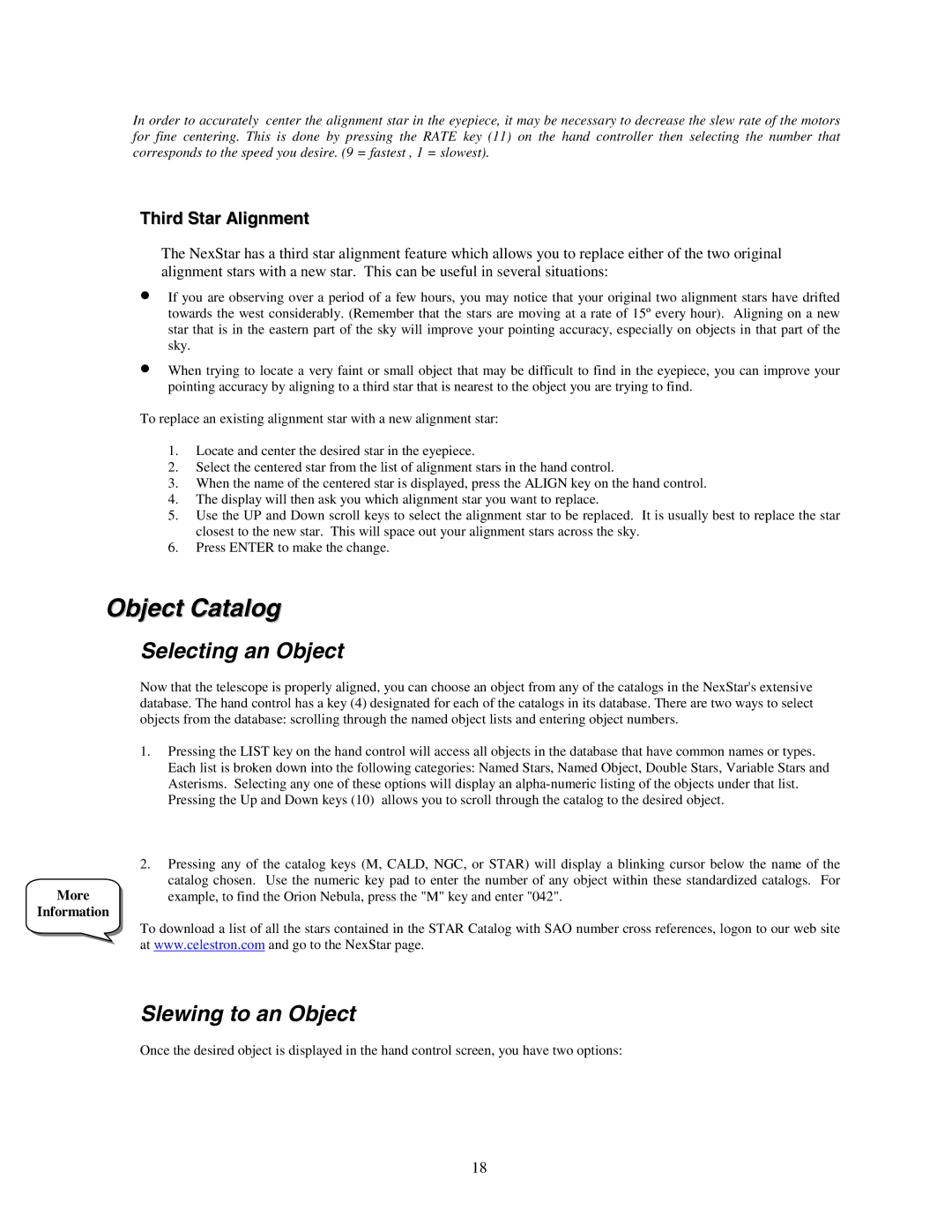NexStar HC specifications
The Celestron NexStar Hand Controller (HC) is an advanced control unit designed to enhance the astronomical observation experience for both novice and experienced stargazers. This innovative device is an integral part of the NexStar telescope series and offers a range of features that simplify the process of locating celestial objects.One of the main features of the NexStar HC is its user-friendly interface. The controller is equipped with a large, illuminated LCD screen that displays essential information clearly, even in low-light conditions. The layout is intuitive, allowing users to quickly familiarize themselves with its functions. The keypad includes dedicated buttons for common tasks, making it easy to navigate the expansive database of celestial objects.
The NexStar HC boasts an impressive database containing over 40,000 celestial objects, making it a powerful tool for astrophotography and observational astronomy. Users can access planets, stars, galaxies, and nebulae at the touch of a button. The built-in database allows for precise and efficient locating of objects, significantly reducing the time spent searching the night sky.
One of the standout technologies featured in the NexStar Hand Controller is the GoTo functionality. This advanced tracking technology enables the telescope to automatically locate and track celestial objects with high precision. By entering the desired object into the controller, users can allow the telescope to autonomously adjust its position, providing a hassle-free experience.
Additionally, the NexStar HC supports various alignment methods, including SkyAlign, AutoAlign, and One-Star Align. These alignment techniques assist in calibrating the telescope for optimal tracking and positioning. The SkyAlign method, in particular, allows users to point the telescope at any three bright stars, and the HC will calculate the telescope's location in relation to those stars, making alignment accessible even for beginners.
The NexStar Hand Controller is also compatible with Celestron’s StarSense technology, enabling automatic alignment using a smartphone. This feature allows users to refine their observations seamlessly and provides a modern twist to traditional stargazing methods.
Other notable characteristics include programmable go-to tracking speeds and the ability to save user-defined locations. The controller’s ergonomic design ensures comfort during long observing sessions, while the robust build quality guarantees durability.
In summary, the Celestron NexStar Hand Controller combines a wealth of features and cutting-edge technologies to enhance the stargazing experience. Its user-friendly interface, extensive database, versatile alignment methods, and compatibility with advanced tracking systems make it an indispensable tool for anyone looking to explore the wonders of the night sky.

